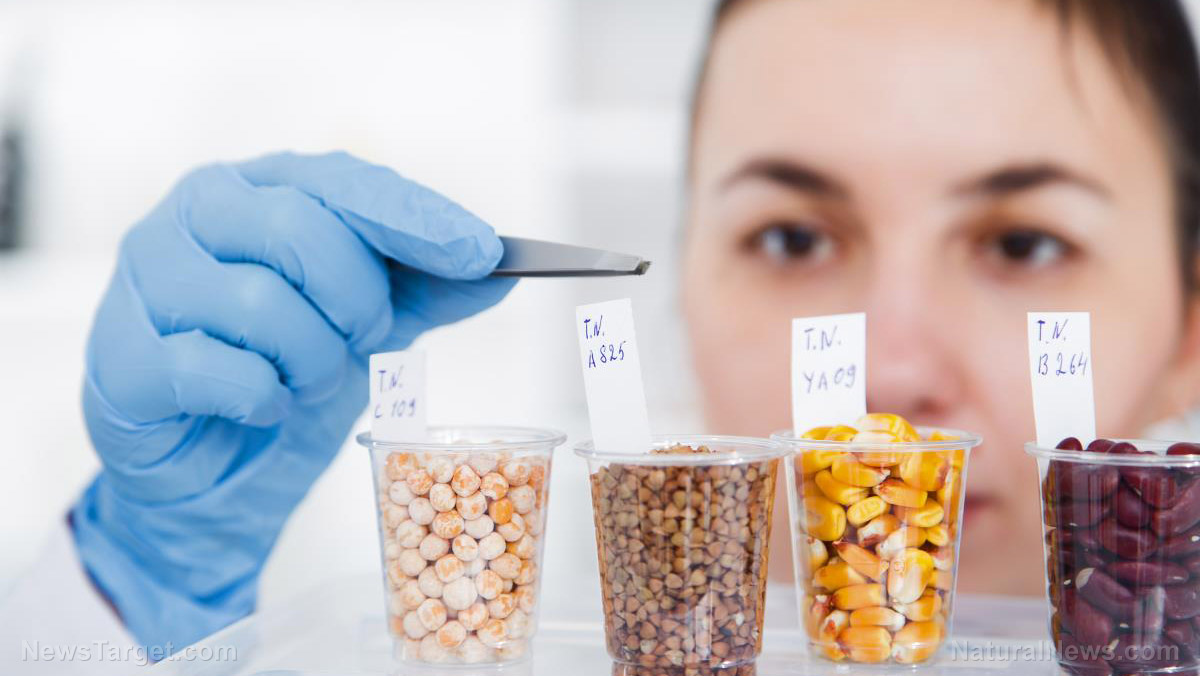The biotech industry has infiltrated and now controls nearly all GMO regulators
08/02/2017 / By Tracey Watson

The debate surrounding genetically modified organisms (GMOs) has been raging for years now, with strongly held viewpoints expressed on both sides. Nonetheless, slowly but surely, the tide seems to be turning in favor of those who are against the use of technology to biologically alter their foods. Of course, this swing in public opinion poses a serious threat to the biotech industry. Instead of confronting the problem head-on, however, they have quietly set out to take over control of the regulatory boards that determine the future of GMO technology, thereby ensuring that their interests are protected.
GM Watch recently reported on one example of this in Argentina. In that country, GM crops are regulated by the National Advisory Committee on Agricultural Biotechnology (Conabia), set up by the government in 1991, when GM crops were first introduced. Officially, Conabia is tasked with ensuring the safety of GM technology in the country, but in reality, at least 26 of its 34 members either work for the very companies which produce these seeds, or are scientists whose work represents a conflict of interest.
All Conabia is really concerned with is ensuring a steady supply of GM animal feed to factory farms in Europe. [Related: Learn how factory animal farms produce meat through routine torture and environmental destruction.]
After attending the most recent international conference for GMO regulators, known as ISBGMO14, Jonathan Latham, Ph.D., explained in an article for Independent Science News, some of the other sneaky ways in which the biotech industry is influencing regulatory boards to push their own agenda.

Data transportability
The biotech industry is pushing the idea of data transportability, in which a single study on the safety of a certain GMO crop should be accepted in countries around the world, irrespective of the diversity of local species and ecosystems. Of course, this means lower costs and fewer risks of negative trial results, but could never comprehensively ensure the safety of a certain crop in multiple different environments.
As Latham notes:
The fewer tests to which a novel GMO is subjected the less research there is to detect a significant problem if one exists.
Need to know versus nice to know
Big Agri’s “need to know” policy means they don’t ask applicants for any data other than that which they voluntarily supply.
Latham outlines the danger:
The downsides to this are identical to data transportability. Less data is less testing and less science.
Trait-based GMO regulation
This clever little loophole means that whether or not a crop was genetically engineered is irrelevant; all that matters is what the applicant identifies as the crop’s primary trait. So, if for example, an applicant was to say that its seed had been modified as an insecticide, further tests would be carried out to determine if that insecticide could harm non-target insects. If, however, the applicant simply said that its seed had been modified to improve flavor and nutritional value, and these “improvements” carry no risk of harm, no further testing would be carried out. In this system, all the control is handed to the applicant.
Tiered risk assessment
This concept is probably the sneakiest and most dangerous one of all. Latham explains it this way:
How is a regulator to know, since the crops produces an insecticide, if it will kill beneficial organisms such as the bees that feed on its flowers?
In tiered risk assessment this question is answered by feeding the purified GMO insecticide to a bee species. If no harm is observed the crop is assumed safe. No further tests are required. If the bees are harmed then a larger scale test, presumptively more realistic, is conducted. If harm is not observed the crop is assumed safe and no further tests are required. If harm is shown then an outdoor or larger-level test will be conducted.
This would be like approving a risky pharmaceutical drug just because it was proven safe in animal trials. Just as such a drug would then have to pass on to small scale human trials, and eventually to large scale human trials, a single tier assessment of a potentially dangerous GMO simply is not comprehensive enough.
One thing is certain: The biotech industry is fighting back, and fighting dirty. It is now more important than ever to defend scientific truth.
Sources include:
Submit a correction >>
Tagged Under:
This article may contain statements that reflect the opinion of the author





















